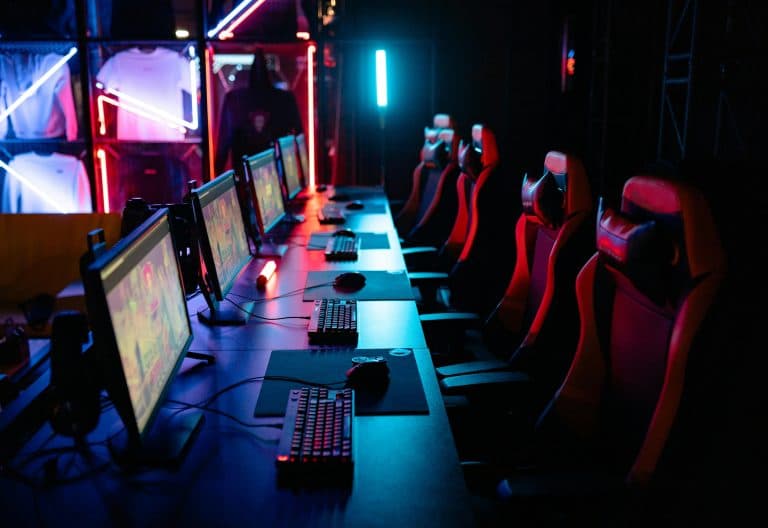We're loading the full news article for you. This includes the article content, images, author information, and related articles.
Beyond a niche hobby, video gaming is rapidly becoming a major economic and social force in Kenya, creating professional pathways and vibrant digital communities while reshaping the nation's cultural landscape.

NAIROBI, KENYA - Once confined to dimly lit gaming parlours and household consoles, video gaming is rapidly embedding itself into the fabric of Kenyan culture, evolving from a niche pastime into a significant economic and social force. Driven by widespread smartphone adoption, a youthful, tech-savvy population, and burgeoning local talent, the industry is not only reshaping entertainment but also creating new career paths and vibrant digital communities across the nation. This digital transformation, taking place from the bustling streets of Nairobi to online forums, is creating tangible economic opportunities and fostering a new generation of Kenyan innovators, positioning the country as a key player in Africa's fast-expanding creative economy.
Kenya's gaming sector is demonstrating robust economic potential. According to a 2025 report from PwC, consumer spending on gaming in Kenya reached US$166 million in 2024 and is projected to climb to US$244 million by 2029, growing at an 8.1% compound annual growth rate (CAGR). This growth is overwhelmingly powered by mobile gaming, which has become the dominant platform due to the accessibility of affordable smartphones.
This economic boom extends beyond consumer spending. The industry is fostering job creation in game development, marketing, and esports management. Local game development studios like Usiku Games, Mekan Games, and Weza Interactive are gaining traction by creating content that resonates with local culture and narratives. Some developers are even using games to address social issues, such as peace and civic education, demonstrating the medium's versatility.
However, the path for local developers is fraught with challenges. Monetizing games in a market where many players have limited disposable income is a significant hurdle. Developers often rely on free-to-play models with in-app purchases and advertising, which require a massive user base to be profitable. Furthermore, limited access to funding, high data costs, and a scarcity of specialized training programs remain considerable barriers to growth. A 2025 report noted that a staggering 76% of Kenya's Entertainment & Media spending goes toward internet connectivity, leaving little for content itself.
Competitive gaming, or esports, is rapidly gaining legitimacy and popularity. Nairobi has become a hub for tournaments and events, such as the East Africa Gaming Convention (EAGC) and Pro Series Gaming (PSG) competitions, which draw large crowds and offer significant prize pools. Corporate entities are taking notice, with brands like Safaricom and Red Bull sponsoring tournaments and investing in the ecosystem.
In September 2025, Safaricom hosted its inaugural gaming conference, "Level Up Africa," aiming to bring together gamers, developers, and policymakers to unlock the industry's potential for job creation and community building. Such initiatives signal a shift from viewing gaming as mere entertainment to recognizing it as a viable career path and a significant component of the digital economy.
The rise of esports has given birth to a new class of celebrity: the professional gamer. Players like Sylvia Gathoni, known as "Queen Arrow," and Brian Diang'a, or "Beast," have become pioneers in the field. Gathoni, a law graduate, made history in 2018 as the first woman in East Africa to be signed to a professional esports team. She is a vocal advocate for gender equity in the male-dominated industry and was named in the Forbes Africa 30 Under 30 class of 2022.
Diang'a's story is one of resilience; he found refuge and purpose in gaming to escape a difficult childhood in Nairobi's Kibera slum. Today, he earns a living through tournaments and sponsorships, and gives back to his community by teaching tech skills to children in impoverished areas. Their journeys illustrate the transformative power of gaming, offering alternative pathways to success for Kenyan youth.
Beyond the economics and professional competitions, gaming is fostering a powerful sense of community and cultural identity. Multiplayer games have created virtual meeting places where Kenyans connect, collaborate, and form friendships that transcend geographical boundaries. This is particularly significant in a culture that values social interaction. Gaming events are evolving from competitive arenas into vibrant social gatherings that celebrate a shared passion.
Local developers are increasingly focused on creating games that tell African stories, drawing from folklore, history, and urban legends. This move towards culturally relevant content is crucial for the industry's local appeal and its potential to shape a unique Kenyan gaming identity on the global stage. The rise of women in the industry is also challenging stereotypes and promoting inclusivity, with organizations like Women in Gaming Africa championing their progress.
Despite its rapid growth, the industry faces societal and regulatory hurdles. A common misconception is the conflation of gaming with gambling, which has at times led to regulatory frameworks that stifle growth. Furthermore, parental and societal understanding of gaming as a viable career remains low, though the success of players like Queen Arrow and Beast is slowly changing perceptions.
As the digital landscape continues to evolve, gaming is poised to become an even more integral part of Kenya's cultural and economic heartbeat. It is a world where entertainment meets opportunity, community is built in virtual spaces, and a new generation is logging on to define its own future.
Keep the conversation in one place—threads here stay linked to the story and in the forums.
Sign in to start a discussion
Start a conversation about this story and keep it linked here.
Other hot threads
E-sports and Gaming Community in Kenya
Active 9 months ago
The Role of Technology in Modern Agriculture (AgriTech)
Active 9 months ago
Popular Recreational Activities Across Counties
Active 9 months ago
Investing in Youth Sports Development Programs
Active 9 months ago